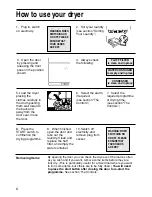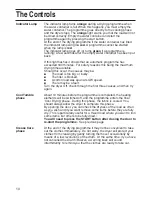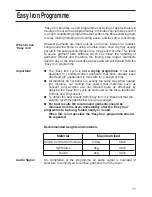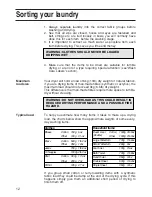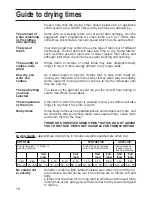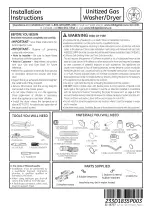
Easy Iron Programme
When to use
‘Easy Iron’
Important!
Audio Signal
‘Easy Iron’ provides a short programme consisting of approximately 8
minutes of heat with an approximately 2 minutes cool tumble period. It
is a short conditioning programme that softens the fibres allowing them
to relax making handling and ironing easier and less time consuming.
However garments are dried, outside on the line, inside on a radiator,
hung around the home or using a tumble dryer, once dry they usually
get left in the same position/place for a long period of time. This tends
to cause garment fibre stiffness which can make the handling of
garments difficult and therefore the ironing time longer. Garments
dried in any of the ways described above and left will benefit from the
‘Easy Iron’ programme.
●
The ‘Easy Iron’ cycle is
not a drying programme
. It has been
designed to condition/soften garments that have already been
dried and left unattended in this state for a period of time.
●
All materials do not behave in exactly the same way when heated.
For instance, our testing has shown that materials such as
Tencel® and Acrylics are not relaxed quite as effectively by
applying the ‘Easy Iron’ cycle as we found on the more traditional
Cottons and Polycottons.
●
To obtain the best results from ‘Easy Iron’ it is important that the
weights recommended below are not exceeded.
●
For best results We recommend garments should be
removed from the dryer immediately after the ‘Easy Iron’
programme to be hung, folded neatly or ironed.
When this is not possible the ‘Easy Iron’ programme should
be repeated.
Recommended weights and materials
On completion of the programme an audio signal is sounded (if
selected) to remind you to remove garments from the dryer.
Material
Maximum load
Cotton and Cotton mixtures
2.5kg
2kg
2kg
5.5lb
4.4lb
4.4lb
Synthetics
Denim
11








